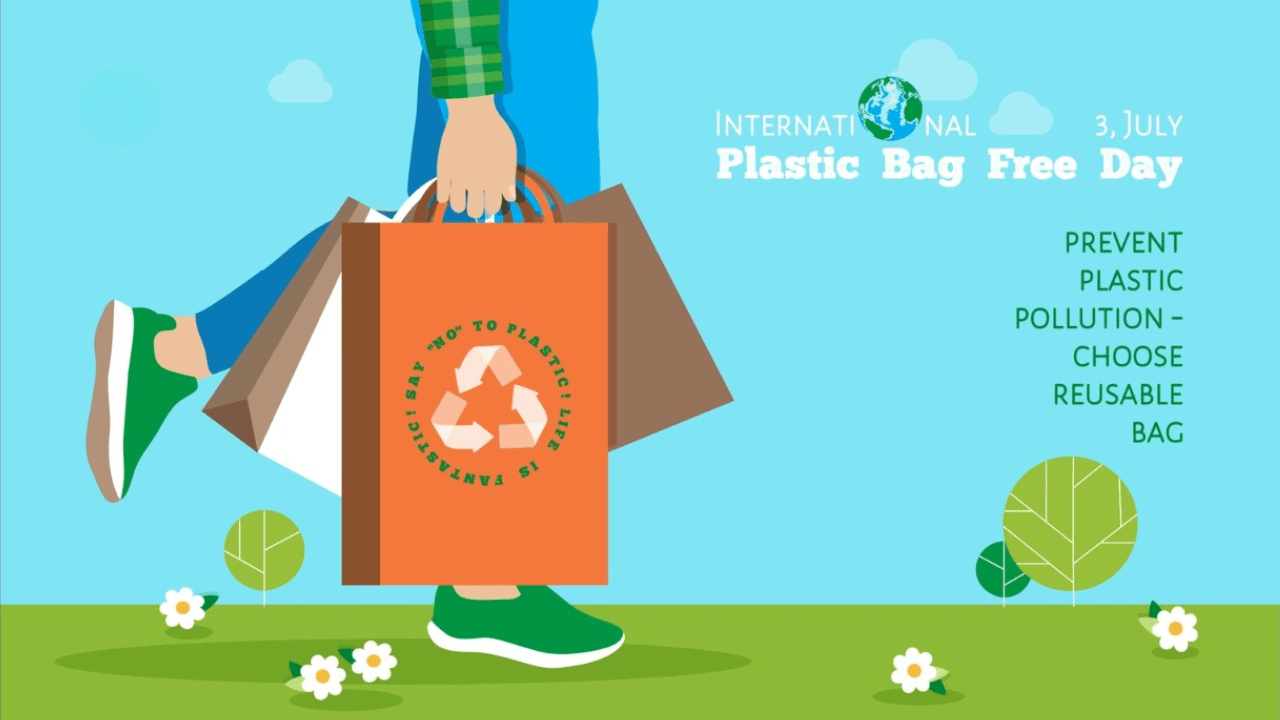International Plastic Bag Free Day is celebrated on July 3 every year to raise awareness about the harmful impact of plastic on the environment. Plastic bags are a major source of pollution, and they can take hundreds of years to decompose. They also end up in our oceans, where they can harm marine life.
International Plastic Bag Free Day is a reminder that we can all do our part to reduce our reliance on plastic bags. By bringing reusable bags to the store, we can help to keep plastic out of our landfills and oceans.
History of International Plastic Bag Free Day
International Plastic Bag Free Day was founded in 2008 by Reloop, a member of Zero Waste Europe (ZWE). The first International Plastic Bag Free Day was celebrated on July 3, 2009. The day was created to raise awareness about the environmental impact of plastic bags.
The Day is celebrated in over 100 countries around the world. In many countries, there are laws that restrict or ban the use of plastic bags.
Some of the milestones
- 2008: Reloop, a member of Zero Waste Europe (ZWE), founds International Plastic Bag Free Day.
- 2009: The first International Plastic Bag Free Day is celebrated on July 3.
- 2011: Over 100 countries participate in International Plastic Bag Free Day.
- 2015: The European Union passes a directive that bans single-use plastic bags in all member states.
- 2018: India bans the use of single-use plastic bags in all major cities.
- 2020: Over 150 countries participate in International Plastic Bag Free Day.
International Plastic Bag Free Day is a growing movement that is making a difference in the environment. By taking action on this day, we can all help to reduce plastic pollution and protect our planet.
Some Facts About Plastic Bags
- Every year, over 1 trillion plastic bags are used worldwide.
- Only a small fraction of plastic bags are recycled.
- Plastic bags can take up to 500 years to decompose.
- Plastic bags can harm marine life, including turtles, whales, and dolphins.
- Plastic bags can also pollute our drinking water.
By reducing our use of plastic bags, we can help to protect the environment and the animals that live in it. So on International Plastic Bag Free Day, let’s all make a pledge to bring our own reusable bags to the store. Together, we can make a difference!
Significance of International Plastic Bag Free Day
International Plastic Bag Free Day is a global initiative that aims to raise awareness about the harmful impacts of single-use plastic bags on the environment. The day is an opportunity for individuals, communities, and businesses to take action and reduce their reliance on plastic bags.
Plastic bags are a major source of pollution. They can take hundreds of years to decompose, and they often end up in our oceans, where they can harm marine life. Plastic bags can also block storm drains and contribute to flooding.
International Plastic Bag Free Day is a reminder that we can all do our part to reduce our reliance on plastic bags. By bringing reusable bags to the store, we can help to keep plastic out of our landfills and oceans.
Here are some of the significance of International Plastic Bag Free Day:
- It raises awareness about the harmful impacts of plastic bags on the environment.
- It encourages people to reduce their use of plastic bags.
- It promotes the use of reusable bags.
- It supports policies that reduce plastic pollution.
International Plastic Bag Free Day is a small but important step in the fight against plastic pollution. By taking action on this day, we can make a difference for the environment and the animals that live in it.
- 3 August Current Affairs 2023 in English
- MoU Between Subroto Mukerjee Sports and Education Society and All India Football Federation (AIFF) to Promote Football at Grassroot Level
- Dr. Mansukh Mandaviya Delivers Keynote Address at the 13th Indian Organ Donation Day ceremony
- Education Ministry Forms Expert Panel on Anti-Discrimination in Higher Education
- Concerns Arise Over Cheetah Deaths at Kuno National Park
FAQs
What are the harmful impacts of plastic bags on the environment?
What are some alternatives to plastic bags?
Reusable bags made from cloth, canvas, or recycled materials.
Paper bags.
Compostable bags.
